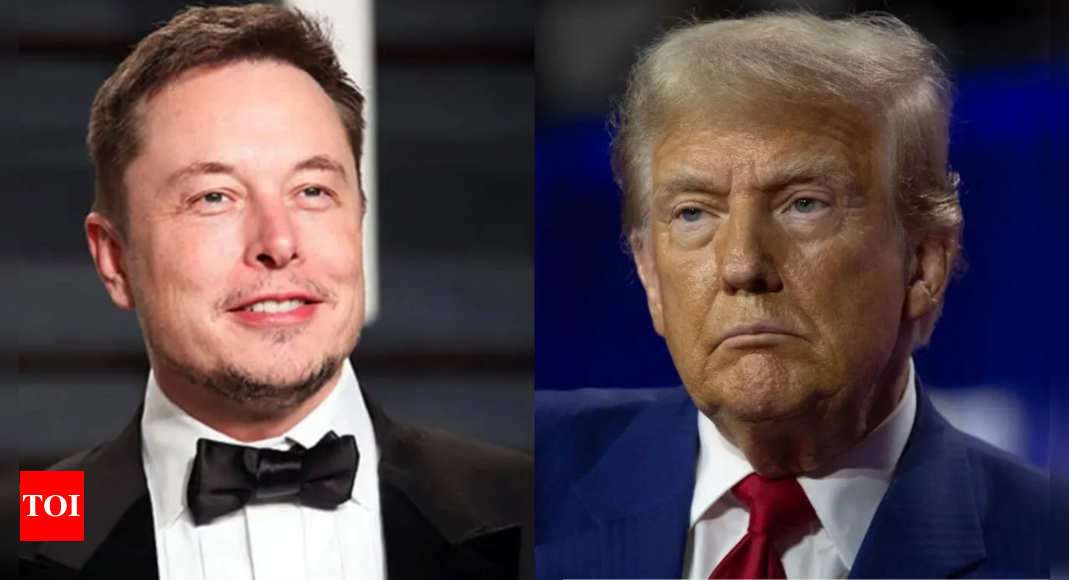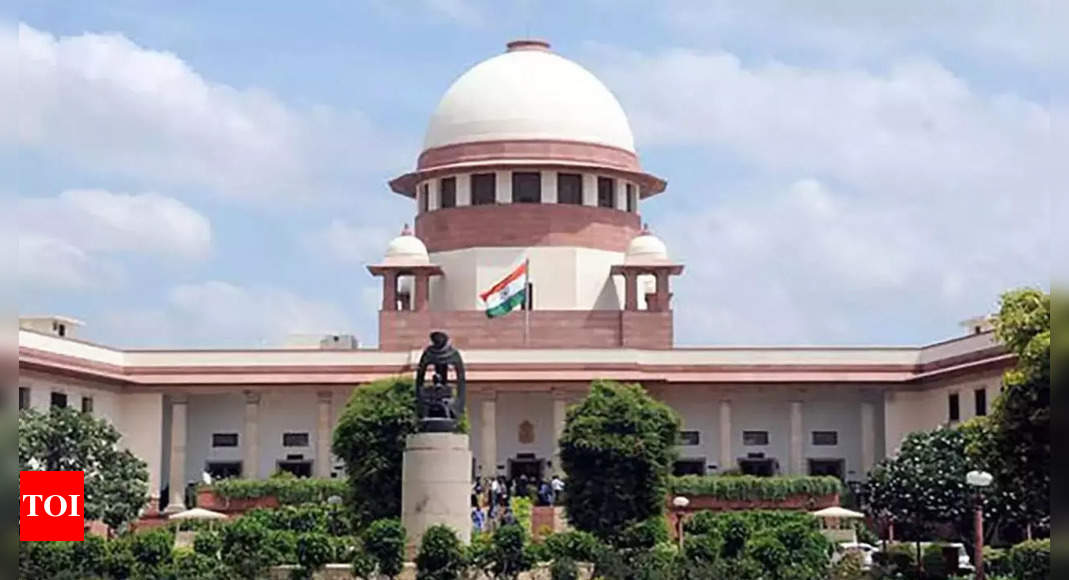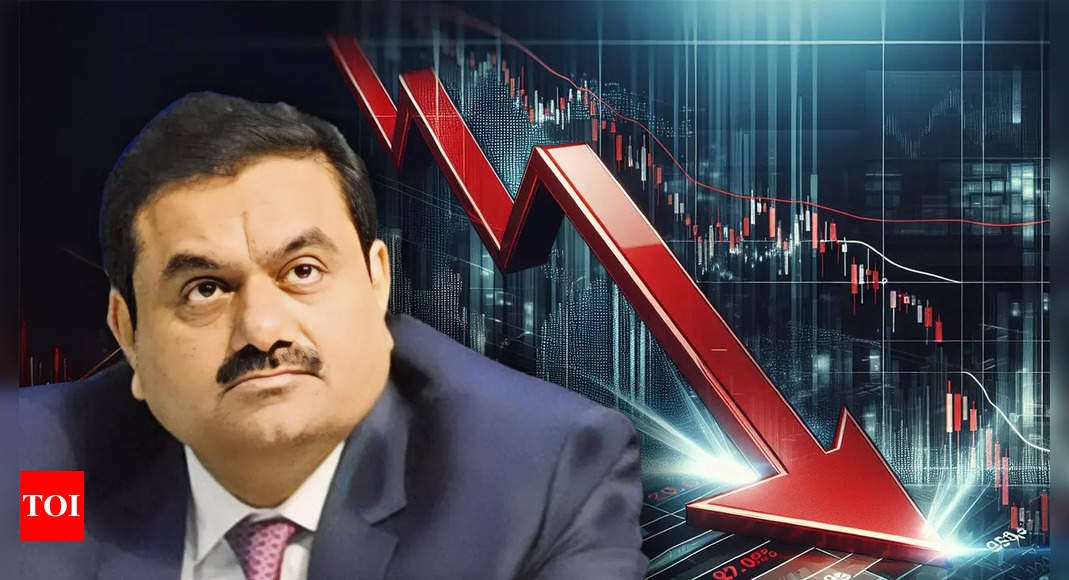
In a livestreamed conversation on his social platform X with former President Donald Trump last month, Elon Musk raised the idea of a “government efficiency commission.” Such a council could ensure that taxpayers’ money was “spent in a good way,” Musk said during their more-than-two-hour talk.
“I’d love it,” Trump said.
On Thursday, Trump followed up on Musk’s suggestion.In a speech at the Economic Club of New York, Trump said he planned to appoint Musk, who leads Tesla, SpaceX and X, as the head of a new government efficiency commission if he was elected president in November.
The commission would audit the “entire federal government” and “make recommendations for drastic reforms,” Trump said.
The announcement capped weeks of discussions between Trump and Musk, who have bonded over a mutual hobbyhorse of eliminating wasteful spending, three people close to the men said. Trump has told Musk that he wants the tech entrepreneur to slash the federal government’s costs, just as he did at X, one of the people said.
Musk, the world’s richest man, has started to influence Trump as the Republican presidential nominee heads into November’s election. That the tech mogul has the ear of the candidate throws open what each can get out of an alliance — and creates a potential minefield. Their political friendship is particularly tricky because Musk has a sprawling set of businesses, which may present conflicts of interest if Trump is elected.
Notably, Musk’s rocket company, SpaceX, and his electric automaker, Tesla, have received billions of dollars in federal contracts and subsidies. Musk and some of his companies are also under scrutiny for various infractions from federal agencies including the Department of Justice, the Federal Trade Commission, and the Securities and Exchange Commission.
“The conflict-of-interest issue is one of the more obvious concerns in this appointment, with SpaceX having government contracts and Tesla benefiting from federal tax credits,” said Ann Skeet, a senior director at the Markkula Center for Applied Ethics at Santa Clara University. “That’s just what happens if Musk is in a position of power in a government agency.”
Musk, 53, has wooed right-wing world leaders before to benefit himself and his companies. In Brazil, he became close with then-President Jair Bolsonaro as he sought advantages for SpaceX. Musk also ardently supports President Javier Milei of Argentina, a country with abundant deposits of lithium, a mineral used in Tesla’s car batteries. Milei has promised to cut government spending and encourage mining operations.
Musk, who endorsed Trump for the presidency in July, did not respond to a request for comment. Before Trump’s speech Thursday, Musk posted on X: “I look forward to serving America if the opportunity arises. No pay, no title, no recognition is needed.”
Brian Hughes, a senior adviser to the Trump campaign, said in a statement, “Elon Musk has dedicated himself to America’s future by offering to serve with President Trump to ensure our government works more efficiently and uses America’s taxpayer dollars effectively.” He added that Trump, 78, was “committed to having Mr. Musk lead this commission to analyze the functionality of our government.”
Musk has long used his account on X, where he has nearly 197 million followers, to push his political views. In recent weeks, he has posted messages excoriating the Biden administration’s policies on government spending and criticizing the campaign promises of Vice President Kamala Harris, the Democratic nominee.
Some of his posts have become more erratic. On Sunday, Musk endorsed a post that suggested that women did not have the ability for critical thought and should not participate in government or democracy. On Monday, he shared an artificial intelligence-generated image of Harris dressed as a communist.
Musk has also posted about spending cuts. He has expressed concerns over what he views as wasteful costs at his businesses, including at X, where he slashed more than 75% of the workforce in 2022 and 2023. X’s market valuation has dropped more than 55% since Musk bought the company in 2022, as advertisers have shied from the platform.
“Government spending is driving America to bankruptcy,” Musk posted on X on Thursday.
Musk and Trump were not always fans of each other. Musk previously said Trump should “sail into the sunset” and instead supported Florida Gov. Ron DeSantis. Trump once used an expletive to describe Musk as a phony.
But their political relationship was kindled with a meeting in March in Palm Beach, Florida, as Trump sought cash infusions for his campaign. Around then, Musk also told a friend that he wanted to keep his support for Trump quiet while backing him financially, the friend recalled.
Musk has since abandoned that caution. Over the spring, he seeded a pro-Trump super political action committee and planned to put as much as $180 million into the group. He also recruited some of his friends, such as tech investor Joe Lonsdale, to front some of the early money for the PAC, which planned to do field organizing for Trump.
But the foray has not been smooth. Musk hired a team for the PAC that he met through Texas politics, but fired them after about two months, replacing them with national political operatives who had worked for DeSantis. Thousands of field organizers were affected by the switch.
Musk has since hired a top Republican political operative, Chris Young, to personally advise him on how to grow more sophisticated in his political work.
In June, at Tesla’s annual shareholder meeting, Musk said he and Trump had been speaking. “I have had some conversations with him, and he does call me out of the blue for no reason,” Musk said.
After an assassination attempt against Trump at a rally in Butler, Pennsylvania, in July, Musk decided to publicly speak up about his support for the Republican candidate.
“I fully endorse President Trump and hope for his rapid recovery,” Musk wrote on X. He later posted a photograph of Trump moments after the assassination attempt and added: “Last time America had a candidate this tough was Theodore Roosevelt.”
During their conversation on X last month, Trump called Musk “the greatest cutter” and praised him for firing employees who wanted to strike. In a podcast appearance a few weeks later, Trump called Musk a “brilliant guy” who could be a consultant to his administration “involved in cutting some of the fat.”
On Thursday, Trump provided few details of what an efficiency commission would do, but he said “fraud and improper payments” had cost taxpayers “hundreds of billions of dollars.” He did not say if Musk planned to divest from or take time off from his companies for the role, should it come to pass.
“As the first order of business, this commission will develop an action plan to totally eliminate fraud and improper payments within six months, saving trillions of dollars,” Trump said, without providing any evidence.
“I’d love it,” Trump said.
On Thursday, Trump followed up on Musk’s suggestion.In a speech at the Economic Club of New York, Trump said he planned to appoint Musk, who leads Tesla, SpaceX and X, as the head of a new government efficiency commission if he was elected president in November.
The commission would audit the “entire federal government” and “make recommendations for drastic reforms,” Trump said.
The announcement capped weeks of discussions between Trump and Musk, who have bonded over a mutual hobbyhorse of eliminating wasteful spending, three people close to the men said. Trump has told Musk that he wants the tech entrepreneur to slash the federal government’s costs, just as he did at X, one of the people said.
Musk, the world’s richest man, has started to influence Trump as the Republican presidential nominee heads into November’s election. That the tech mogul has the ear of the candidate throws open what each can get out of an alliance — and creates a potential minefield. Their political friendship is particularly tricky because Musk has a sprawling set of businesses, which may present conflicts of interest if Trump is elected.
Notably, Musk’s rocket company, SpaceX, and his electric automaker, Tesla, have received billions of dollars in federal contracts and subsidies. Musk and some of his companies are also under scrutiny for various infractions from federal agencies including the Department of Justice, the Federal Trade Commission, and the Securities and Exchange Commission.
“The conflict-of-interest issue is one of the more obvious concerns in this appointment, with SpaceX having government contracts and Tesla benefiting from federal tax credits,” said Ann Skeet, a senior director at the Markkula Center for Applied Ethics at Santa Clara University. “That’s just what happens if Musk is in a position of power in a government agency.”
Musk, 53, has wooed right-wing world leaders before to benefit himself and his companies. In Brazil, he became close with then-President Jair Bolsonaro as he sought advantages for SpaceX. Musk also ardently supports President Javier Milei of Argentina, a country with abundant deposits of lithium, a mineral used in Tesla’s car batteries. Milei has promised to cut government spending and encourage mining operations.
Musk, who endorsed Trump for the presidency in July, did not respond to a request for comment. Before Trump’s speech Thursday, Musk posted on X: “I look forward to serving America if the opportunity arises. No pay, no title, no recognition is needed.”
Brian Hughes, a senior adviser to the Trump campaign, said in a statement, “Elon Musk has dedicated himself to America’s future by offering to serve with President Trump to ensure our government works more efficiently and uses America’s taxpayer dollars effectively.” He added that Trump, 78, was “committed to having Mr. Musk lead this commission to analyze the functionality of our government.”
Musk has long used his account on X, where he has nearly 197 million followers, to push his political views. In recent weeks, he has posted messages excoriating the Biden administration’s policies on government spending and criticizing the campaign promises of Vice President Kamala Harris, the Democratic nominee.
Some of his posts have become more erratic. On Sunday, Musk endorsed a post that suggested that women did not have the ability for critical thought and should not participate in government or democracy. On Monday, he shared an artificial intelligence-generated image of Harris dressed as a communist.
Musk has also posted about spending cuts. He has expressed concerns over what he views as wasteful costs at his businesses, including at X, where he slashed more than 75% of the workforce in 2022 and 2023. X’s market valuation has dropped more than 55% since Musk bought the company in 2022, as advertisers have shied from the platform.
“Government spending is driving America to bankruptcy,” Musk posted on X on Thursday.
Musk and Trump were not always fans of each other. Musk previously said Trump should “sail into the sunset” and instead supported Florida Gov. Ron DeSantis. Trump once used an expletive to describe Musk as a phony.
But their political relationship was kindled with a meeting in March in Palm Beach, Florida, as Trump sought cash infusions for his campaign. Around then, Musk also told a friend that he wanted to keep his support for Trump quiet while backing him financially, the friend recalled.
Musk has since abandoned that caution. Over the spring, he seeded a pro-Trump super political action committee and planned to put as much as $180 million into the group. He also recruited some of his friends, such as tech investor Joe Lonsdale, to front some of the early money for the PAC, which planned to do field organizing for Trump.
But the foray has not been smooth. Musk hired a team for the PAC that he met through Texas politics, but fired them after about two months, replacing them with national political operatives who had worked for DeSantis. Thousands of field organizers were affected by the switch.
Musk has since hired a top Republican political operative, Chris Young, to personally advise him on how to grow more sophisticated in his political work.
In June, at Tesla’s annual shareholder meeting, Musk said he and Trump had been speaking. “I have had some conversations with him, and he does call me out of the blue for no reason,” Musk said.
After an assassination attempt against Trump at a rally in Butler, Pennsylvania, in July, Musk decided to publicly speak up about his support for the Republican candidate.
“I fully endorse President Trump and hope for his rapid recovery,” Musk wrote on X. He later posted a photograph of Trump moments after the assassination attempt and added: “Last time America had a candidate this tough was Theodore Roosevelt.”
During their conversation on X last month, Trump called Musk “the greatest cutter” and praised him for firing employees who wanted to strike. In a podcast appearance a few weeks later, Trump called Musk a “brilliant guy” who could be a consultant to his administration “involved in cutting some of the fat.”
On Thursday, Trump provided few details of what an efficiency commission would do, but he said “fraud and improper payments” had cost taxpayers “hundreds of billions of dollars.” He did not say if Musk planned to divest from or take time off from his companies for the role, should it come to pass.
“As the first order of business, this commission will develop an action plan to totally eliminate fraud and improper payments within six months, saving trillions of dollars,” Trump said, without providing any evidence.









